critics
Simone de Beauvoir
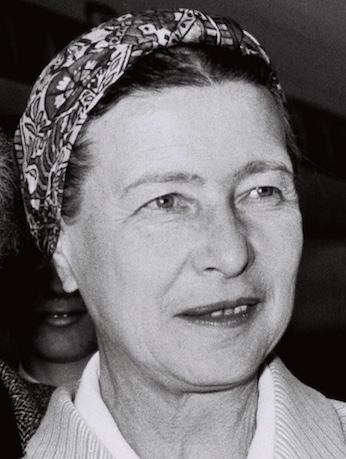
On this date in 1908, French author and atheist Simone de Beauvoir was born in Paris to Georges Bertrand de Beauvoir, a legal secretary, and Françoise de Beauvoir (née Brasseur), a wealthy banker’s daughter and devout Catholic. A deeply religious child, she initially wanted to be a nun but at age 14 had a crisis of faith and concluded there was no God. She instead studied and taught philosophy and wrote prolifically.
Educated at the Sorbonne, de Beauvoir played a major role in the French Existentialist movement, along with close companion and atheist Jean-Paul Sartre. She is best-known for her monumental work The Second Sex (1949), in which she posited that society treats woman as “the other.” She also wrote popular novels and other nonfiction such as A Very Easy Death (1964). De Beauvoir championed freedom as the ultimate good.
She and Sartre were involved romantically from 1929 until his death in 1980. She never married or had children while engaging in a number of open relationships, including with women. Perhaps her most famous lover was American author Nelson Algren, whom she met in Chicago in 1947. She died of pneumonia at age 78 and is buried next to Sartre in Montparnasse Cemetery in Paris. (D. 1986)
PHOTO: Moshe Milner photo, Creative Commons 3.0
"Man enjoys the great advantage of having a God endorse the codes he writes; and since man exercises a sovereign authority over woman, it is especially fortunate that this authority has been vested in him by the Supreme Being. For the Jews, Mohammedans, and the Christians, among others, man is master by divine right; the fear of God, therefore, will repress any impulse toward revolt in the downtrodden female."
— Simone de Beauvoir, "The Second Sex" (1949, translated and edited by H.M. Parshley, 1953)
John Ruskin
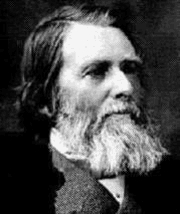
On this date in 1829, art critic and reformer John Ruskin was born an only child in London. His mother, a devout evangelical, wanted him to study for the clergy but he turned to the arts, studying art and poetry at King’s College and Oxford. In Praeterita (1855), Ruskin related that by age 14 he had rejected the literal truth of the scriptures: “It had never entered into my head to doubt a word of the Bible, though I saw well enough already that its words were to be understood otherwise than I had been taught; but the more I believed it, the less it did me any good.”
Ruskin credited his interest in geology with destroying his faith, being unable to reconcile science with such claims as the biblical flood. Ruskin became a public figure when he took up the cudgels to defend the paintings of J.M.W. Turner, writing the book Modern Painters (1843). Ruskin wrote several other books on art, then turned to social reform, working as an art teacher with the London Working Men’s College, and writing on economic questions. Ruskin also founded the Art School at Oxford, a museum in Sheffield, and attempted some experimental agrarian communities. “In an earlier age he might have become a saint,” noted E.T. Cook in the Dictionary of Natural Biology.
Ruskin gave away most of his inheritance on the theory that it was a contradiction to be a rich socialist. He became a professor of art at Oxford (1869-79). His interest in architecture helped to birth the National Trust and the Society of the Protection of Ancient Buildings. In his reforming years (1858-75), Ruskin was decidedly agnostic, telling Augustus Hare in 1860 that he “believed nothing” (Hare, Story of My Life). Although he dallied with spiritualism in the 1870s and regained a vague theism, according to biographer Cook, Ruskin never rejoined the church. Cook also wrote that Ruskin rejected the misconception that morality depends on religion. Ruskin’s returning interest in religion coincided with his first of several recurring bouts of mental illness in 1878. (D. 1900)
"It is neither Madonna-worship nor saint-worship, but the evangelical self-worship and hell-worship — gloating, with an imagination as unfounded as it is foul, over the torments of the damned, instead of the glories of the blest — which have in reality degraded the languid powers of Christianity to their present state of shame and reproach."
— Ruskin, "Fors Clavigera" (1875)
Anthony Burgess
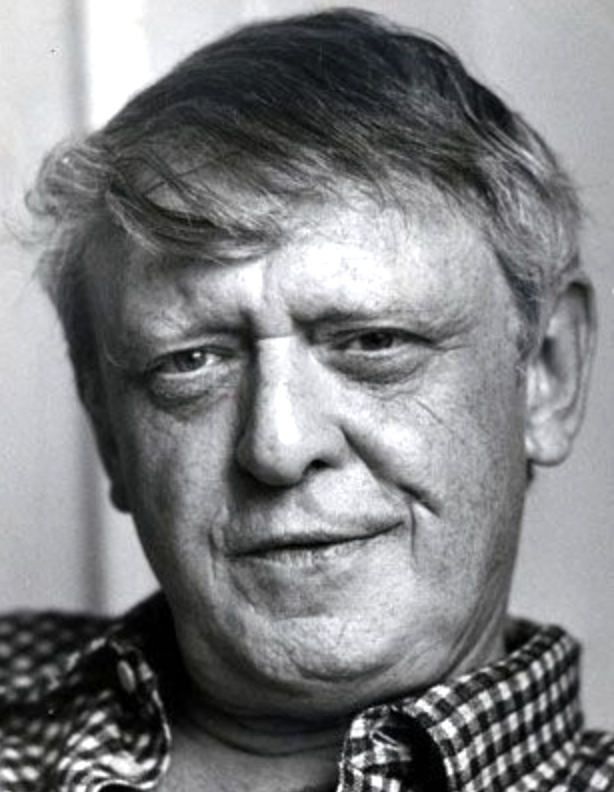
On this date on 1917, Anthony Burgess (né John Anthony Burgess Wilson) was born in Manchester, England. His mother and sister died in the 1918 flu pandemic. The author of 50 books, he is best known for his novel A Clockwork Orange (1962), which was made into a movie directed by Stanley Kubrick in 1971. Burgess was also a translator, critic, composer, librettist and screenwriter. He wrote at least 65 musical compositions and preferred to be called “a musician who writes novels.”
He was educated at a Catholic college and graduated from Manchester University in 1940. He joined the British Army Education Corps, which entertained troops in Europe, and was stationed in Gibraltar. Burgess later said a World War II sexual assault by four American deserters on his first wife, Llewela Isherwood Jones, partly inspired his examination of violence in A Clockwork Orange.
He taught after the war and was a distinguished professor at the City College of New York, 1972-73.
“The ideal reader of my novels is a lapsed Catholic and failed musician, short-sighted, color-blind, auditorily biased, who has read the books that I have read,” he told The Paris Review in a 1973 interview. According to his 1993 New York Times obituary, he also once said, “I don’t think there’s a heaven, but there’s certainly a hell. Everything we’ve experienced on earth seems to point toward the permanence of pain.”
"I was brought up a Catholic, became an agnostic, flirted with Islam and now hold a position which may be termed Manichee. I believe the wrong God is temporarily ruling the world and that the true God has gone under. Thus I am a pessimist but believe the world has much solace to offer: love, food, music, the immense variety of race and language, literature and the pleasure of artistic creation."
— Burgess, New York Times obituary (Nov. 26, 1993)
Émile Zola
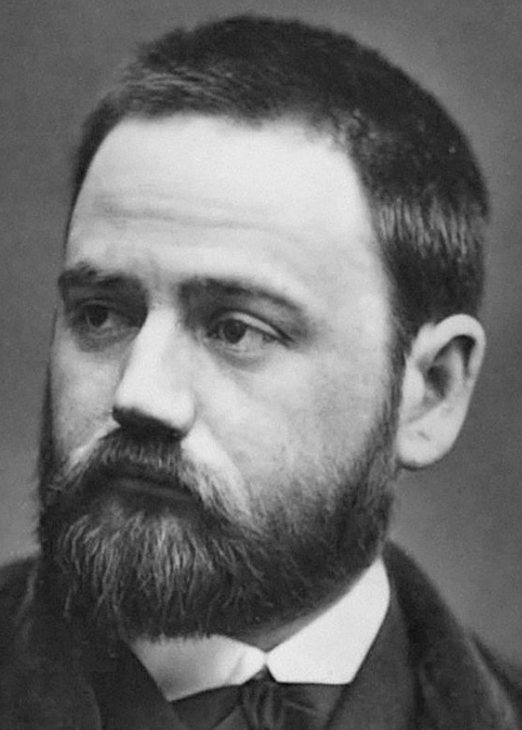
On this date in 1840, Émile Édouard Charles Antoine Zola was born in Paris. The novelist pioneered naturalistic writing, believing ugly problems could not be solved as long as they stayed hidden. As a struggling young writer, Zola supported himself as a clerk. Legend has it he sometimes resorted to trapping birds on his windowsill in order to eat. Zola also moonlighted as a political reporter and critic. He was fired from a publishing house after an early autobiographical novel created notoriety.
His breakthrough novel was Therese Raquin (1867). By the time his book L’Assammoir (“The Drunkard,” 1878) appeared, Zola was France’s most famous writer, yet he was barred his entire life from the Academy. His book Germinal (1885), about conditions in a coal mine leading to a strike, was denounced by the rightwing. Nana (1880) examined sexual exploitation.
Zola’s most enduring work is his open letter “J’Accuse,” about the Dreyfus case. He campaigned with Clemenceau to free the the French Jewish army officer falsely accused of spying. Zola was sentenced to imprisonment for writing “J’Accuse” in 1898, escaping to England until he could safely return after Dreyfus’ name had been cleared. Zola, who was baptized Catholic, was a notable critic of the Catholic Church (and vice versa). The church particularly condemned his books Lourdes, Rome, and Paris (1894-98). He was an honorary associate of the British Press Association. (D. 1902)
PHOTO: Zola, circa 1865.
“Given Émile Zola’s reputation as an agnostic and a radical thinker, he has often been avoided by scholars with a religious background.”
— Anthony Evenhuis, "Messiah Or Antichrist?: A Study of the Messianic Myth in the Work of Zola" (1998)
Roger Ebert
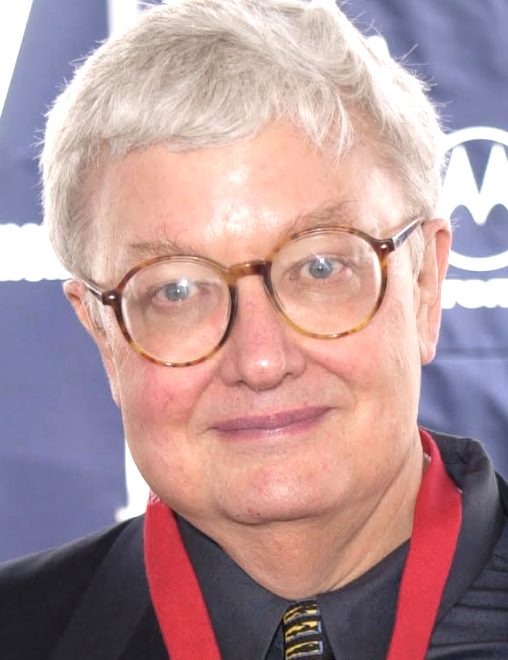
On this date in 1942, film critic Roger Ebert was born in Urbana, Illinois. Ebert became an icon in Chicago and around the world as a film critic whose reviews were honest, thoughtful and genuine. He attended the University of Illinois at Urbana-Champaign and graduated in 1964 with a degree in journalism. He was the editor of the university’s newspaper, the Daily Illini, and wrote his first movie reviews there.
Ebert moved to Chicago after graduation and began covering stories for the city editor of the Chicago Sun-Times in 1966. He became the newspaper’s movie critic in 1967, a position he held until his death over 40 years later. His work became syndicated in over 200 publications.
In 1975 he started a TV show with Gene Siskel, his counterpart at the Chicago Tribune. They became known for reviewing movies with either a thumbs up or a thumbs down. Ebert wrote many books, including several collections of movie reviews, a cookbook of recipes made with a rice cooker and a memoir. Ebert received honorary degrees from the American Film Institute and the University of Colorado at Boulder.
He won a Pulitzer Prize in Criticism in 1975, the first film critic to do so. He was also the first film critic with a star on the Hollywood Walk of Fame. In 2002 he was diagnosed with cancer of the thyroid and salivary glands and underwent several surgeries which removed part of his jaw and left him unable to speak. He continued to review movies throughout his illness and worked until shortly before his death.
Ebert, who grew up Catholic, chose not to define his religious beliefs, saying he is not an atheist and not a believer. He clarified his religious views in a blog post called “How I believe in God.” He said, “I have never said, although readers have freely informed me I am an atheist, an agnostic, or at the very least a secular humanist — which I am. If I were to say I don’t believe God exists, that wouldn’t mean I believe God doesn’t exist. Nor does it mean I don’t know, which implies that I could know.”
Ebert married Chaz Hammelsmith, an attorney, in 1992, at age 50 his first marriage, and was with her until his death at age 70. (D. 2013)
"I know it is coming, and I do not fear it, because I believe there is nothing on the other side of death to fear. I was perfectly content before I was born, and I think of death as the same state. What I am grateful for is the gift of intelligence, and for life, love, wonder, and laughter. You can’t say it wasn’t interesting."
— Ebert, blog post titled "Go Gentle into That Good Night" (May 2, 2009)
Matthew Arnold
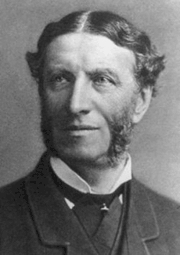
On this date in 1822, Victorian poet and critic Matthew Arnold was born in Laleham on the Thames. He graduated from Oxford in 1844. His father was Thomas Arnold, the inspiration for Tom Brown’s Schooldays and head of the famous school of Rugby. Arnold parted ways with Christianity sometime in his teens on intellectual and ethical grounds and became an agnostic. In “Stanzas from the Grande Chartreuse,” he later wrote, “Rigorous teachers seized my youth / And purged its faith, and trimm’d its fire / Show’d me the high, white star of Truth.”
In 1851 he was appointed one of “Her Majesty’s Inspector of Schools,” a post he held for 35 years. That same year he married Frances Lucy. They would have six children. In 1852 he published his second volume of poems, Empedocles on Etna, and Other Poems, which religious critics sought to censor. Poems of Matthew Arnold was published in 1857, followed by other volumes. Arnold served for a decade as professor of poetry at Oxford. In his 40s he largely turned from poetry to critical writing. His Essays in Criticism came out in 1865.
Arnold’s freethinking was clearly delineated in Culture and Anarchy (1869), Saint Paul and Protestantism (1870), Literature and Dogma (1873) and Last Essays on Church and Religion (1877). In his poem, “Dover Beach,” he described “The Sea of Faith … Retreating.” Although he gently defined religion as “morality touched with emotion” and some detect a tinge of regret in his rejection of faith, he was an ardent critic of Christian doctrine and the bible.
“It is almost impossible to exaggerate the proneness of the human mind to take miracles as evidence, and to seek for miracles as evidence,” he wrote in Literature and Dogma. “Miracles do not happen,” he baldly wrote in the preface to the 1883 edition of Literature and Dogma. He died at age 65 of heart failure while hurrying to meet his daughter, who was arriving on a train. (D.1888)
“The personages of the Christian heaven and their conversations are no more matter of fact than the personages of the Greek Olympus and their conversations.”
— Arnold, "God and the Bible" preface (1875)
Quentin Crisp
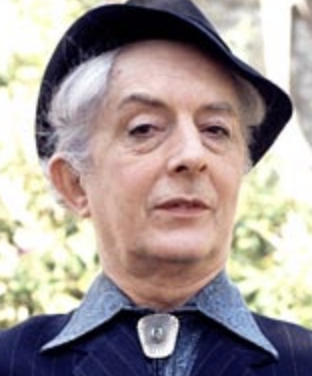
On this date in 1908, writer and critic Quentin Crisp was born in suburban London. He attended a school in Derbyshire in his teens, which he later described as a cross between a monastery and a prison. He worked as an illustrator and designer of book covers, writing books such as Lettering for Brush and Pen (1936) and Colour in Display (1938).
He happened onto his 35-year stint of posing as an art school model, then wrote The Naked Civil Servant (1968) about his career. An award-winning film version, starring John Hurt, brought Crisp to public attention.
“An Evening with Quentin Crisp” debuted off-Broadway in 1978 and played off and on for two decades. His later books include How to Have a Life-Style (1976), Love Made Easy (1977), The Wit and Wisdom of Quentin Crisp (1998) and Quentin Crisp’s Book of Quotations (1989).
Openly gay and famed for his aphorisms, he is sometimes called a “20th-century Oscar Wilde.” Once asked if he were a “practicing homosexual,” Crisp replied, “I didn’t practice. I was already perfect.” (D. 1999)
“When I told the people of Northern Ireland that I was an atheist, a woman in the audience stood up and said, ‘Yes, but is it the God of the Catholics or the God of the Protestants in whom you don’t believe?’ "
— Crisperanto: The Quentin Crisp Archives (www.crisperanto.org)
Sarah Vowell
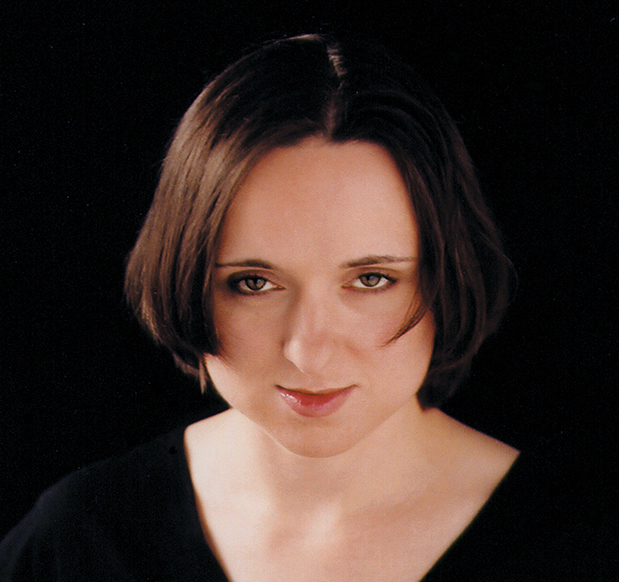
On this date in 1969, Sarah Jane Vowell was born in Muskogee, Okla., and moved with her family, which has Cherokee heritage, to Montana when she was 11. She has a fraternal twin sister, Amy. She majored in modern languages and literatures at Montana State University, where she received her B.A. in 1993 and went on to earn an M.A. in art history at the School of the Art Institute of Chicago. Vowell is the author of seven nonfiction books (as of this writing in 2019) as well as an essayist whose work has been published in The New York Times, Esquire, McSweeney’s and elsewhere.
Vowell has been a frequent contributor to public radio’s “This American Life” since 1996, the show’s first year. She voiced the character Violet in the film “The Incredibles” (2004).
Her books examine American history and the history of religion in America through a combination of road-trip memoir and insightful historical content. Assassination Vacation (2005) detailed presidential assassinations and 19th-century American history, including cults and quasi-religious themes. The Wordy Shipmates (2008) told the story of the Puritan settlement of Massachusetts and touched on the true origins of the idea of religious freedom in America as propounded by Roger Williams, the founder of Rhode Island exiled from Massachusetts Bay for his refusal to adhere to church doctrine.
Unfamiliar Fishes (2011) told the story of the loss of the traditional Hawaiian religion and inhabitants’ conversion to Christianity by missionaries from New England, along with the eventual U.S. conquest instigated by the first missionaries’ descendants in 1895. Lafayette in the Somewhat United States (2015) is an account of the Marquis de Lafayette, the young French aristocrat who became George Washington’s trusted officer and friend and an American celebrity.
She was asked in 2002 by The Onion AV Club “Is There a God?” She answered, “Absolutely not.” In a 2008 New York Times op-ed, she wrote, “I have become just another citizen whose only religion is the freedom of religion and as such I patrol the wall of separation between church and state like some jumpy East German guarding Checkpoint Charlie back before Ronald Reagan single-handedly tore it down.”
Vowell has never married or had children. She is on the advisory board of 826NYC, a nonprofit tutoring and writing center for students aged 6–18 in Brooklyn, N.Y.
PHOTO: By Bennett Miller
“Because I am a culturally Christian atheist the same way my atheist Reform friends are culturally Jewish, I look forward to Martin Luther King's Birthday — when the news momentarily replaces the rants of the faith-based spitfires with clips of what an actually Christlike Christian sounds like.”
— Vowell op-ed, New York Times (Jan. 21, 2008)
